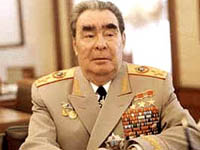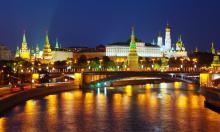Leonid Brezhnev: Shadow and light of the glorious USSR
Today, on December 19, Russians mark the 100th anniversary of Leonid Ilych Brezhnev – an outstanding Soviet leader, the Secretary General of the Communist Party from 1964 till 1982.

Leonid Brezhnev took the office in October of 1964, when his predecessor, another prominent communist Nikita Khrushchev, was entirely relieved of all his authorities and retired on a pension. Khrushchev became known for his progressive political course which took off the bloody veil of Stalinism from the whole nation. Leonid Brezhnev and his team continued Khrushchev’s political initiatives.
Stalin was developing a program to reform the administrative system of the Soviet nation since the second half of the 1940s. According to the plan, the functions of the state and the party were supposed to be separated. The Council of Ministers of the USSR with its chairman – Joseph Stalin – should have held the whole power in the country. Nikita Khrushchev’s program had absolutely different goals.
Brezhnev completed the so-called destalinization process in the Soviet Union, originally started by Khrushchev. It was the Communist Party that obtained full authority and thus established strict control over security agencies and armed forces.
When Mikhail Gorbachev came to power, he labeled Leonid Brezhnev’s era as the years of stagnation, or “zastoi.” This word was widely used in the USSR back then. Indeed, the social and economic development of the Soviet Union was declining during Brezhnev’s time. However, Brezhnev built a very strong economic foundation for the country, expanded its financial and technical potential, and gave a powerful incentive to the development of major industrial branches. This foundation gave the whole country a possibility to survive the severe economic crisis in the beginning of the 1990s.
Brezhnev paid much attention to the development of the social system of the Soviet Union. The pension system was developing steadily in the USSR nationwide, reaching out to not only town but village residents. Brezhnev’s government also took serious measures to develop free education in the country available to everyone. Judging upon the financial well-being of the population and the number of social programs implemented in the country, one may say that Leonid Brezhnev’s political era was one of the most stable epochs in Russian history. To crown it all, those years are remembered for their extremely low criminality, which is obviously connected with the development of Soviet law-enforcement agencies.
Leonid Brezhnev was trying to copy the Western model of mass consumption, although the government was unable to eliminate a very serious lack of goods and services in the country. The omnipresent deficit gave rise to the so-called shadow economy and criminal business. Slowly but surely, the “captains” of this business were turning into a strong economic force linking up with official power structures. This force generated corruption and played a significant role in the final destruction of the Soviet power.
Speaking about the Soviet society during the period of “Dear Leonid Brezhnev” era, one should mention cultural and social peculiarities of Soviet people. The Soviet power was administering the new society with long-standing and old-fashioned methods of ideological and police control. The Soviet society of the 1970s and the 1980s is the urbanist, secular and industrial society possessing a high level of individualism as well as cultural and educational development. The old propaganda machine did not work under such circumstances. Huge funds were spent to propagandize the Soviet ideology, but its influence on the people was declining steadily.
Prepared by Dmitry Sudakov
Pravda.ru
Visit Pravda.ru Forum, share your thoughts
Subscribe to Pravda.Ru Telegram channel, Facebook, RSS!



